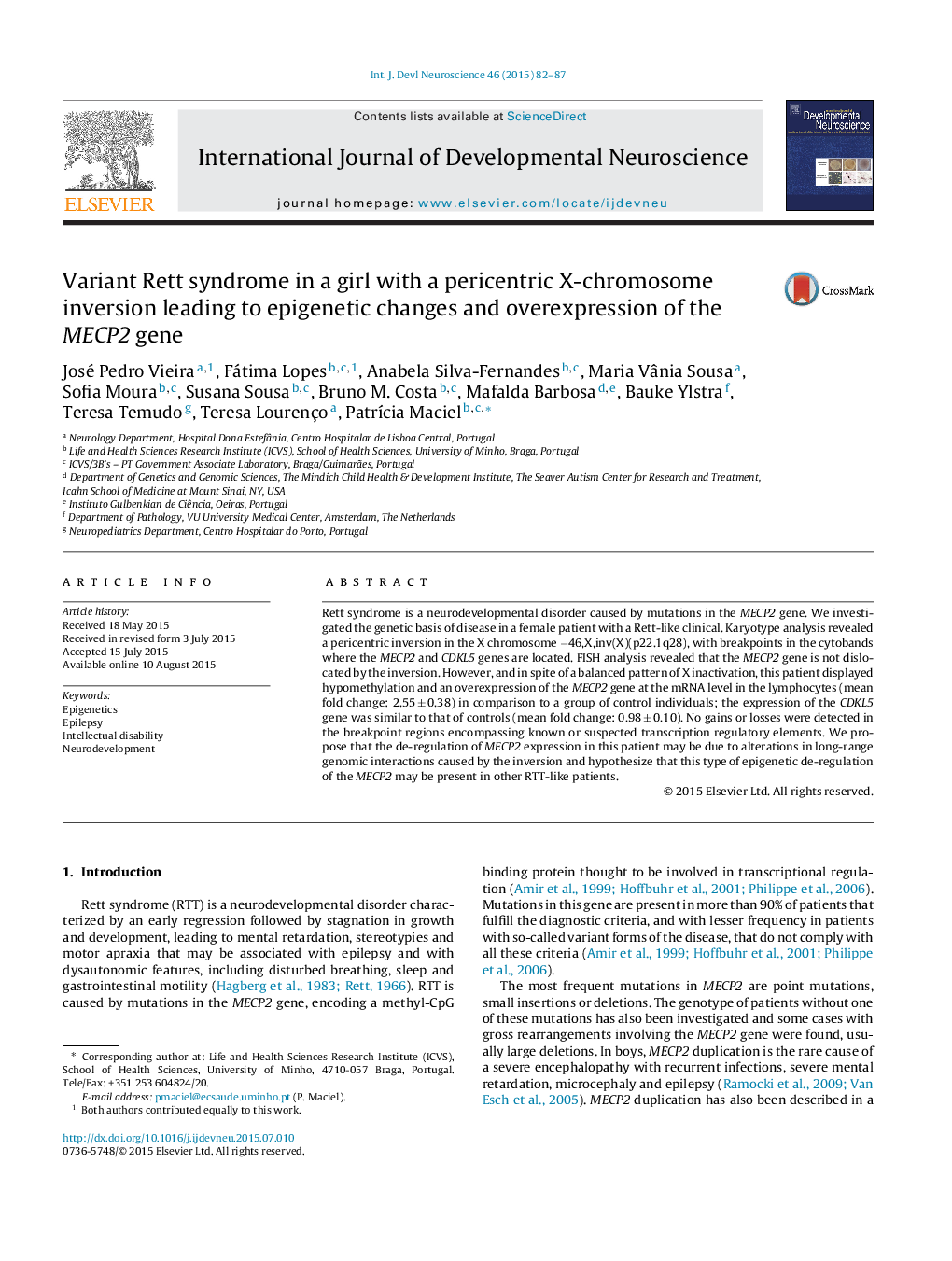| Article ID | Journal | Published Year | Pages | File Type |
|---|---|---|---|---|
| 2785694 | International Journal of Developmental Neuroscience | 2015 | 6 Pages |
•We investigated the genetic basis of disease in a female patient with a RTT-like clinical presentation.•Geneomic studies, quantification of lymphocyte mRNA expression and methylation status of the promoter region of MECP2 gene were performed.•Karyotype analysis revealed a pericentric inversion in the X chromosome 46,X,inv(X)(p22.1q28).•The patient displayed hypomethylation and an overexpression of the MECP2 gene at the mRNA level in the lymphocytes.•We propose that the de-regulation of MECP2 expression in this patient may be due to alterations in long-range genomic interactions.
Rett syndrome is a neurodevelopmental disorder caused by mutations in the MECP2 gene. We investigated the genetic basis of disease in a female patient with a Rett-like clinical. Karyotype analysis revealed a pericentric inversion in the X chromosome −46,X,inv(X)(p22.1q28), with breakpoints in the cytobands where the MECP2 and CDKL5 genes are located. FISH analysis revealed that the MECP2 gene is not dislocated by the inversion. However, and in spite of a balanced pattern of X inactivation, this patient displayed hypomethylation and an overexpression of the MECP2 gene at the mRNA level in the lymphocytes (mean fold change: 2.55 ± 0.38) in comparison to a group of control individuals; the expression of the CDKL5 gene was similar to that of controls (mean fold change: 0.98 ± 0.10). No gains or losses were detected in the breakpoint regions encompassing known or suspected transcription regulatory elements. We propose that the de-regulation of MECP2 expression in this patient may be due to alterations in long-range genomic interactions caused by the inversion and hypothesize that this type of epigenetic de-regulation of the MECP2 may be present in other RTT-like patients.
